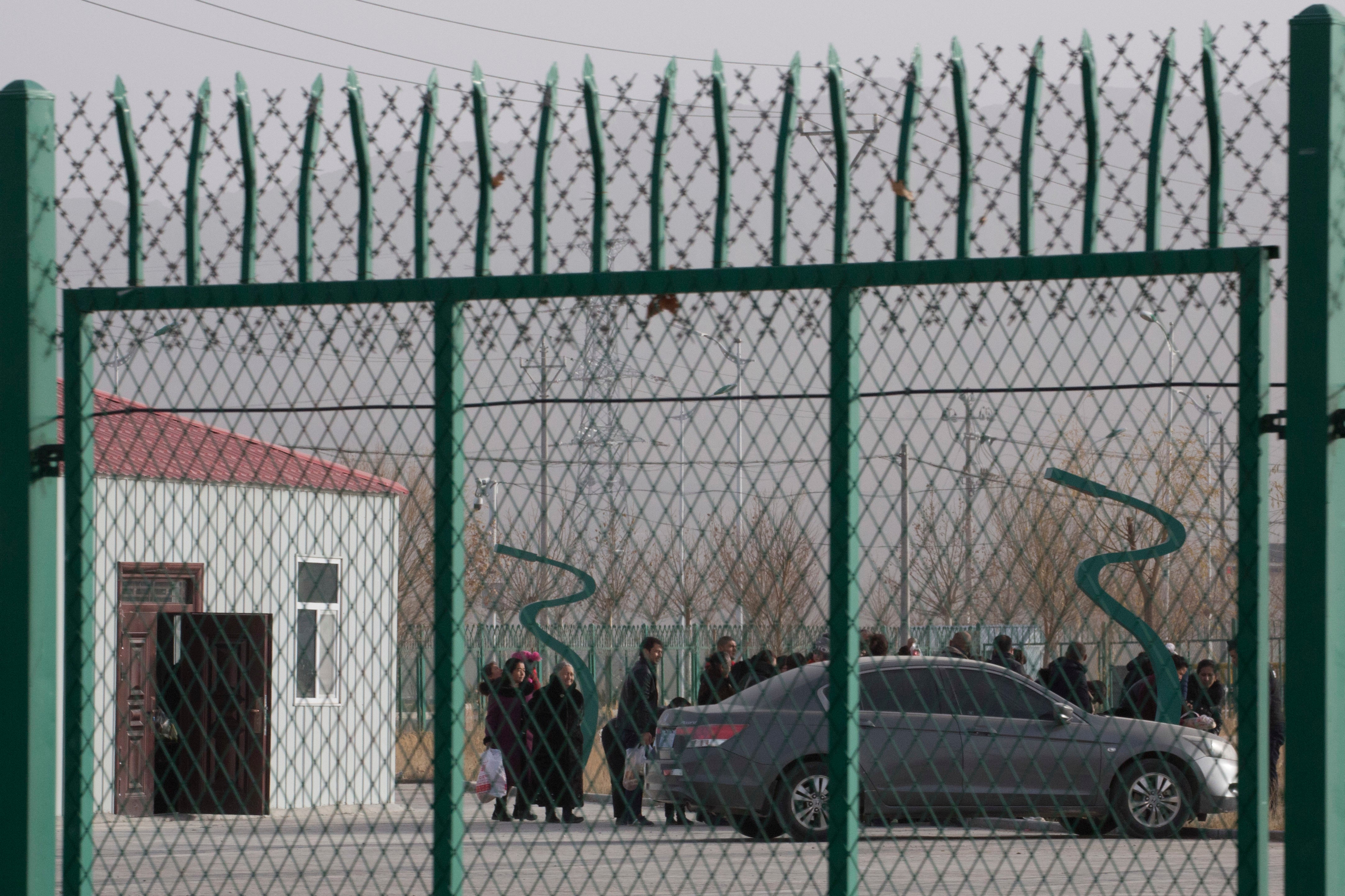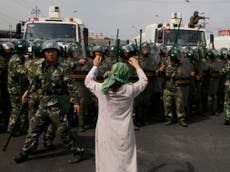China: More than 1 million people sent to Xinjiang internment camps each year, report says
The report defends the internment camps as ‘vocational training centres’

Your support helps us to tell the story
From reproductive rights to climate change to Big Tech, The Independent is on the ground when the story is developing. Whether it's investigating the financials of Elon Musk's pro-Trump PAC or producing our latest documentary, 'The A Word', which shines a light on the American women fighting for reproductive rights, we know how important it is to parse out the facts from the messaging.
At such a critical moment in US history, we need reporters on the ground. Your donation allows us to keep sending journalists to speak to both sides of the story.
The Independent is trusted by Americans across the entire political spectrum. And unlike many other quality news outlets, we choose not to lock Americans out of our reporting and analysis with paywalls. We believe quality journalism should be available to everyone, paid for by those who can afford it.
Your support makes all the difference.China has published a white paper defending its Xinjiang internment camps for Uighur Muslims and other ethnic minorities following the US announcing it will block some exports from the region over alleged human rights abuses.
Beijing’s paper, published on Thursday, also gives some indication of the scale of the labour programmes, stating that an average of 1.29 million workers, including 415,400 from southern Xinjiang, were “trained” annually between 2014 and 2019.
The document does not clarify whether workers have passed through these “vocational training centres“ multiple times.
However, a total of almost eight million people – out of Xinjiang’s population of 22 million – may have been through the programme, according to the report’s figures.
In the report, the Chinese Communist party government defends its labour programme by claiming it exists to alleviate poverty through employment, saying: “Through its proactive labor and employment policies, Xinjiang has continuously improved the people’s material and cultural lives, and guaranteed and developed their human rights in every field”.
The document, which has been published in several languages, suggesting it is aiming for an international audience, said the average annual “relocation of surplus rural labour” was more than 2.76 million people, more than 60 per cent of whom were in southern Xinjiang.
It repeatedly underlines the role of the "training centres" in alleviating poverty. Between 2018 and 2019, the paper says some 155,000 people in southern Xinjiang and the surrounding area “found employment outside their home towns and subsequently emerged from poverty”.
Beijing has come under fire for accusations of human rights abuses, and even genocide, against the region’s Uighur Muslims – allegations it has repeatedly denied.
Other charges levied by human rights groups include ‘re-education’ and surveillance of ethnic minorities. China has also been accused of forced sterilisation of women.
The government has consistently insisted that mass "vocational education and training" is necessary in the region to combat terrorism and poverty.
The US has compared the Xinjiang detention centres to concentration camps, and this week blocked exports from five entities in the region it claimed used forced labour.
A region-wide ban may still be considered, US officials said.
The escalation followed US sanctions, announced in July, against Chinese politicians who it claims are responsible for human rights breaches against Muslim minorities.
"These extraordinary human rights violations demand an extraordinary response," Kenneth Cuccinelli, the Department of Homeland Security's acting secretary said, announcing the export block. "This is modern-day slavery."
China responded by saying allegations of forced labour were fabricated.
Earlier this week, clothing giant H&M said it was ending an “indirect” relationship with a supplier in China in light of allegations of “forced labour” within the supply chain.





Join our commenting forum
Join thought-provoking conversations, follow other Independent readers and see their replies
Comments